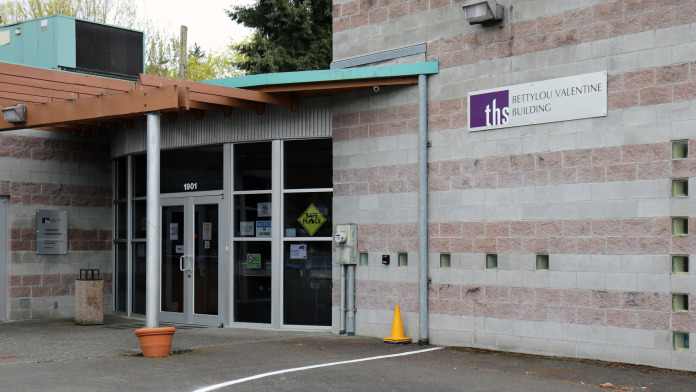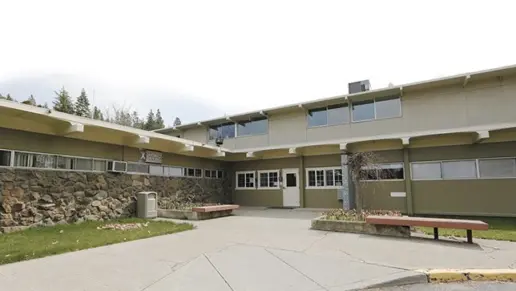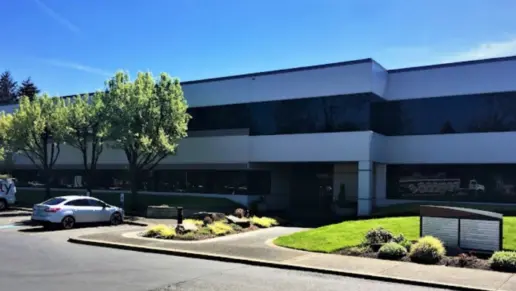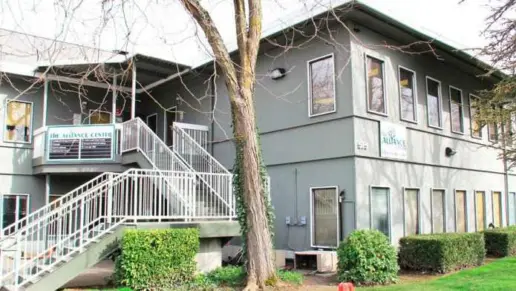I had really high expectations about THS but clearly they were the worst choice I could have made, a bad experience which I hope I can forget asap.
About THS – Therapeutic Health Services – Youth & Family Services
Specialty rehab programs at THS – Therapeutic Health Services – Youth & Family Services include tailored care focusing on women's specific needs and experiences, gender-specific addiction treatment addressing unique challenges faced by men, and age-appropriate treatment for teens addressing adolescent-specific issues.
Patients at THS – Therapeutic Health Services – Youth & Family Services will find the residential setting creates an immersive environment promoting full engagement in recovery away from daily triggers. For recreation, patients can use the yoga studio to work on active mindfulness and improve flexibility, unwind in the rec room after a lengthy day of therapy, or use the meditation room to promote mindfulness during recovery.
 Payment Options
Payment Options
Medicaid
Private insurance
Self-pay options
Financial aid
Military insurance
Military Insurance
 Levels of Care
Levels of Care
 Outpatient
Outpatient
Outpatient programs are for those seeking mental rehab or drug rehab, but who also stay at home every night. Outpatient is not meant to be the starting point, it is commonly referred to as aftercare. Weekly Aftercare (ASAM Level I.0) meets weekly in therapeutic groups facilitated by a Chemical Dependency Professional offering assistance in further development, recognition and implementation of recovery tools that support lifestyle changes which help the individual to overcome personal negative issues caused or exacerbated by substance use.
 Intensive Outpatient
Intensive Outpatient
Intensive Outpatient Program (IOP) (ASAM Level II.I) focuses on intensive group counseling for persons diagnosed with a substance use disorder by exploring recovery tools and skills related to the biological, psychological, sociological and spiritual areas of the individual’s life. IOP is provided for nine hours per week over three group sessions and utilizes interactive lecture, video presentation, homework and written handouts. Each session includes the review of treatment materials as well as a therapeutic group process segment.
 12-Step
12-Step
12-step programs are addiction recovery models based on Alcoholics Anonymous (AA). A number of substance abuse programs (including some drug and alcohol rehab centers) use the 12 steps as a basis for treatment. Beginning steps involve admitting powerlessness over the addiction and creating a spiritual basis for recovery. Middle steps including making direct amends to those who've been hurt by the addiction, and the final step is to assist others in addiction recovery in the same way. 12-Step offshoots including Narcotics Anonymous (NA), Cocaine Anonymous (CA), Dual Recovery Anonymous (DRA), Sex and Love Addicts Anonymous (SLAA) and Gamblers Anonymous (GA).
 Aftercare Support
Aftercare Support
This group (ASAM Level I.0) assists individuals who have experienced recent relapse and/or have been referred to the group by individuals who recognize the need for more intense relapse prevention skills prior to the relapse experience. It is an eight week program consisting of two groups per week covering relapse prevention and direct reinforcement of the participant’s ongoing recovery program in order to encourage personal growth and support.
 Programs
Programs
 Teen Program
Teen Program
 Adult Program
Adult Program
 Seniors Program
Seniors Program
 Program For Men
Program For Men
 Program For Women
Program For Women
 Young Adult Program
Young Adult Program
 Settings & Amenities
Settings & Amenities
-
Residential Setting
-
Private Setting
-
Yoga Studio
-
Recreation Room
-
Meditation Room
 Treatment
Treatment
 Alcoholism
Alcoholism
The goal of treatment for alcoholism is abstinence. Those with poor social support, poor motivation, or psychiatric disorders tend to relapse within a few years of treatment. For these people, success is measured by longer periods of abstinence, reduced use of alcohol, better health, and improved social functioning. Recovery and Maintenance are usually based on 12 step programs and AA meetings.
 Drug Addiction
Drug Addiction
Effective drug rehab in Washington integrates care for the whole person, offering comprehensive solutions to addiction. Treatment methods address mental, physical, and relational aspects of substance abuse.
 Dual Diagnosis
Dual Diagnosis
When a young person struggles with an emotional problem like depression or anxiety and turns to drugs or alcohol, they may have a cooccurring disorder. The core of their Integrated Cognitive Therapies Program (ICTP) is one therapist who provides both mental health counseling and substance use therapy in each session. Specifically grounded in effective treatment models, ICTP can help young people improve focus in school, heal family relationships and achieve other personal goals.
 Mental Health and Substance Abuse
Mental Health and Substance Abuse
A combined mental health and substance abuse rehab has the staff and resources available to handle individuals with both mental health and substance abuse issues. It can be challenging to determine where a specific symptom stems from (a mental health issue or an issue related to substance abuse), so mental health and substance abuse professionals are helpful in detangling symptoms and keeping treatment on track.
 Opioid Addiction
Opioid Addiction
Opioid rehabs specialize in supporting those recovering from opioid addiction. They treat those suffering from addiction to illegal opioids like heroin, as well as prescription drugs like oxycodone. These centers typically combine both physical as well as mental and emotional support to help stop addiction. Physical support often includes medical detox and subsequent medical support (including medication), and mental support includes in-depth therapy to address the underlying causes of addiction.
 Clinical Services
Clinical Services
 Cognitive Behavioral Therapy
Cognitive Behavioral Therapy
Cognitive Behavioral Therapy (CBT) is a therapy modality that focuses on the relationship between one's thoughts, feelings, and behaviors. It is used to establish and allow for healthy responses to thoughts and feelings (instead of unhealthy responses, like using drugs or alcohol). CBT has been proven effective for recovering addicts of all kinds, and is used to strengthen a patient's own self-awareness and ability to self-regulate. CBT allows individuals to monitor their own emotional state, become more adept at communicating with others, and manage stress without needing to engage in substance abuse.
 Family Therapy
Family Therapy
Research clearly demonstrates that recovery is far more successful and sustainable when loved ones like family members participate in rehab and substance abuse treatment. Genetic factors may be at play when it comes to drug and alcohol addiction, as well as mental health issues. Family dynamics often play a critical role in addiction triggers, and if properly educated, family members can be a strong source of support when it comes to rehabilitation.
 Group Therapy
Group Therapy
Group therapy is any therapeutic work that happens in a group (not one-on-one). There are a number of different group therapy modalities, including support groups, experiential therapy, psycho-education, and more. Group therapy involves treatment as well as processing interaction between group members.
 Individual Therapy
Individual Therapy
In individual therapy, a patient meets one-on-one with a trained psychologist or counselor. Therapy is a pivotal part of effective substance abuse treatment, as it often covers root causes of addiction, including challenges faced by the patient in their social, family, and work/school life.
 Life Skills
Life Skills
THS vocational staff builds collaborations with business owners and community employers to secure job opportunities for their program participants. The THS vocational curriculum assists participants with skill development in completing job applications, forms, resumes, and interviewing skills. THS Staff provide community support services and encouragement for participants who are placed in jobs. Additionally, their staff assists participants in securing public funding as they progress through THS treatment programs.
 Motivational Interviewing
Motivational Interviewing
Motivational Interviewing (MI) is a clinical approach to helping people with substance abuse issues and other conditions shift behavior in positive ways. It is more goal-oriented than traditional psychotherapy, as MI counselors directly attempt to get clients to consider making behavioral change (rather than wait for them to come to conclusions themselves). Its primary purpose is to resolve ambivalence and help clients become able to make healthy choices freely.
Nutrition Therapy
Nutrition therapy, aka medical nutrition therapy (MNT), is a way of treating physical, emotional, and medical conditions through diet. Specific dietary plans are designed by professional nutritionists or registered dietitians, and patients follow them in order to positively affect their physical and mental health.
 Trauma Therapy
Trauma Therapy
Trauma therapy addresses traumatic incidents from a client's past that are likely affecting their present-day experience. Trauma is often one of the primary triggers and potential causes of addiction, and can stem from child sexual abuse, domestic violence, having a parent with a mental illness, losing one or both parents at a young age, teenage or adult sexual assault, or any number of other factors. The purpose of trauma therapy is to allow a patient to process trauma and move through and past it, with the help of trained and compassionate mental health professionals.
 Contact
Contact
1901 Martin Luther King Jr Way South
Seattle, WA 98144



